Here's the ultimate software list for PC fanatics
Alpha, beta and nightly builds
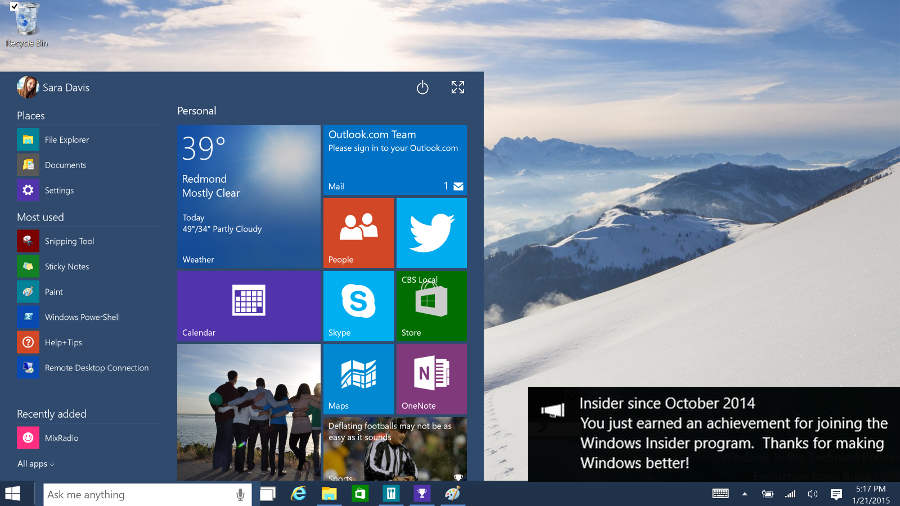
Introduction
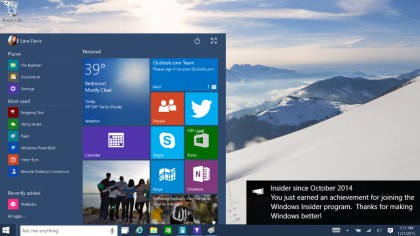
For years, before the internet became truly mainstream, beta software was shrouded in a cloak of mystery. Copies of software would often circulate on private servers or on CD-ROMs or DVDs but the advent of cheap, fast connectivity and the prevalence of software-as-a-service has changed that.
Now allowing more people to test an application at an earlier stage in its development seems to have become a de-facto step, allowing for a more transparent and open process that is often used to evangelise and build momentum towards the final launch of the said software.
The best case study is probably that of Windows 10 whereby Microsoft enrolled millions of users eager to try their hands at the latest version of the company's operating system.
These early adopters provided Microsoft with tons of feedback either directly or indirectly (using telemetry) and highlighted the importance of a successful so-called Alpha/Beta program.
Should you want to join this growing army of anonymous software developers' lil' helpers, here's a list of some of the best-known alpha, beta or nightly builds.
Note: We deliberately kept games, non-Windows and mobile applications off the radar as it would have been too much of a task. Also bear in mind that this is development, bleeding edge software.
Expect them to crash, produce errors or spit out any sort of random message box at any moment. Should this happen and should your computer explode (or any other similar mishap), we cannot be held responsible. You are installing these applications at your own risk.
Are you a pro? Subscribe to our newsletter
Sign up to the TechRadar Pro newsletter to get all the top news, opinion, features and guidance your business needs to succeed!
If you think we've missed one app (or two or three), nudge us in the comments.
Internet

Even though Opera might not have the user base of Google Chrome or Mozilla Firefox, it makes up for this by providing beta updates every two weeks and bringing new features to the table that other browsers simply can't offer. In the past it has brought the much vaunted Turbo mode to beta users first, which gives slow connections a chance to shine by compressing pages by up to 80%. It has given over a whole section of its website to developers and openly encourages input from what is a burgeoning community.
Hated by some, used by many, and tweaked by developers all over the globe, Google brings many of the best loved new features to four different channels. Canary builds are released daily, comprised of the least stable "bleeding edge" features, and can be run alongside a more stable version of the browser. The Dev channel is the next step up and is updated once or twice a week to show what's being worked on right now, and it is updated as soon as it is tested. Beta is updated weekly and gets features over a month before Stable gets the features.
The open source project behind the Google Chrome browser is where you come if Canary isn't hardcore enough for you and you want something even more unstable/new. The Chromium continuous build waterfall provides working builds that can be downloaded by taking down the number under "LKGR" at the top of the page, going to this Google Storage bucket, and downloading the correct build.
Like Chrome, Firefox has four different release channels that all offer a very different way to experience the browser. Nightly is the most unstable and is where the highest level of experimentation occurs – users are told to expect features to appear one day and be gone the next. With Aurora, meanwhile, upcoming features will be relatively stable and in an early state yet there's no guarantee they'll ever make it to the final version. Beta is the most stable pre-release and the likelihood of anything crashing is fairly low. This is all leading up to the Stable releases. Each channel lasts for six weeks for each release and gives ample time for a lot of experimentation.
Mozilla also has a free email application that has plenty of features, is free, and has two release channels prior to its stable release. Earlybird is the first channel and gives developers the opportunity to provide feedback on the features they liked/disliked the most. Beta brings a more stable experience that again gives users the chance to submit comments on features and this is all before the Stable channel provides the latest release. There is also a Daily channel that precedes Earlybird and each release follows a similar timescale to Firefox.
Multimedia
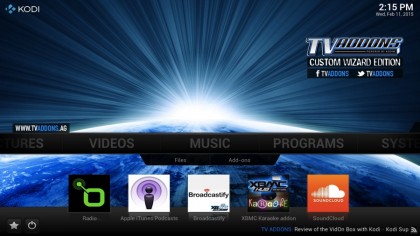
Kodi, or XMBC to give the software its former name, is a free open source media player that is developed by the XMBC Foundation and available for just about every operating system out there. Third parties have a huge part to play in the non-profit video player and plugins are contributed to every release by different parties.
This means that a new version of Kodi is being developed at all times with nightly builds delivered which are the most unstable, and monthly builds arriving followed by a final stable build about once every year. The upcoming release, Isengard, has so far seen two Alpha builds and a couple of Beta releases.
Another of the non-profit open source options is the renowned VLC Player. This software has a presence across a huge range of platforms and nightlies are available for Windows (32-bit and 64-bit), Mac OS X, Ubuntu, as well as a number of different versions of Android.
One of the internet's most popular video transcoders, Handbrake has been around for some time and given that it's open source, there's an active community constantly contributing to the project. Nightly builds are released and based on the latest development code available with Windows, Mac, Ubuntu and LibHB all supported by the team. The French company's developer section is among the most straightforward around, and there's a dedicated forum for you to post information on any bugs that you find whilst playing around with the builds.
Making a name for itself in the free audio recording category, Audacity's team brings binaries for various different versions of Windows, Mac OS X and GNU/Linux. Mac users are treated to alpha builds every night at 03:15 (GMT) in the "Release" configuration from the GIT trunk. Complementing this is a weekly alpha build in "Debug" configuration that comes out every Sunday at 04:15 (GMT) and is slower so as to be able to trace crashes and other issues.
For Windows XP/Vista/7/8 users there's a "frequent" but not nightly alpha build in "Release" configuration and Ubuntu developers get daily PPA installation packages. The latter are against wxWidgets 3.0 that aren't supported by Audacity and may contain bugs.
Utilities
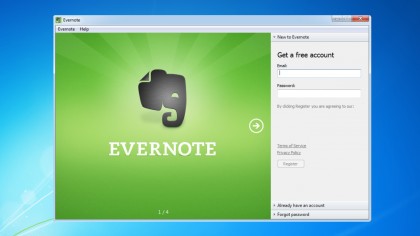
Ever wanted to extend the use of your expensive new keyboard and mouse? The Synergy project makes that possible, allowing you to use one set of peripherals across multiple computers, with support for Windows, Mac OS X and Linux, and there's a high level of developer support constantly striving to make it a more extensive product. Nightly builds are provided for all three platforms via a very basic page that simply lists every single one ever released along with a search bar at the top. Here you'll also find a stable version every few days.
Safely uploading files onto the internet means downloading an FTP server. FileZilla is one of the better solutions out there and offers an extensive level of nightly builds for developers. Windows, Mac OS X and Linux are all supported with the nightly builds page that lists the versions that are supplied with a green or red colour indicating the presence of a build. The extensive development section also includes the source code of the latest stable release, and a version history including the latest changes plus a changelog.
Compressing image and document files in this age of free cloud storage isn't as relevant as it used to be, but there are plenty of larger files that need to be smaller in order to be shared. 7zip is the best cross-platform program out there for this purpose and provides a number of builds to tinkered with.
For those that want something a bit more stable the alpha and beta versions are available straight from the front page. Developers looking for the latest builds are encouraged to visit the Sourceforge page, where there are discussion groups and a Wiki page that takes some getting used to but contains information on various implementations of the program.
Recognised as one of the best free note-taking programs out there, Evernote has become an app that has, in part, forced the hand of Microsoft to bring Office to even more devices. A section of the website is given over to developers to play around with the API that allows them to plug into Evernote with their own apps. It doesn't, however, provide nightly builds of the program itself yet there is plenty that can be done with the API – and with the active forums you'll always find a helpful ear.
Another way to browse FTP, SFTP, WebDAV, S3 or OpenStack Swift, Cyberduck is available for both Mac and Windows. It is of the open source persuasion and as such is ripe for developers to have a tinker around with. Nightly, or snapshot, builds of the program can be found here and are updated on a daily basis for those that want a tough and unstable version of the program. There is even a way to switch to the snapshot or beta builds by using the update settings inside either Windows or Mac OS X (find out more here).
Torrent downloads have always been synonymous with the names BitTorrent and uTorrent, which are both owned by the former company. New releases are out all of the time and are split up into Beta or Stable depending on how safe they are to use. Each one gets a new flavour every couple of weeks with the beta releases available via this page and stable ones can be found here. Unfortunately there's little in the way of nightly builds, but the regularity of beta and stable releases means that features find their way into this program at a faster rate than some others.

Replacing the Microsoft Project is no mean feat but with rave reviews and awards for being one of the top open source projects, ProjectLibre has done just that. The open source project management solution is updated very regularly and both the code plus every version that's ever been released can be found on the dedicated SourceForge page. Finding nightly builds, however, is tricky and there is little information online outside of the discussion boards on the ProjectLibre site itself.
Windows 10 will be one of the biggest revolutions to hit PCs in a number of years and its imminent arrival means that the Windows Insider hub has been rife with activity in recent months. Microsoft has even turned up the speed it delivers updates to its insiders. Microsoft's method differs to some of the others on this list in that you must become part of the Windows 10 Insider Program to get the builds. Becoming part of the "fast" ring ensures you can get updates as they're available and you can stay on board once Windows 10 gets its public release.
Office is the name in productivity and even though Microsoft's attempting to change the way it is used by the masses, there will always be an offline version for everyone who prefers it that way. That means a steady stream of builds for its latest version, Office 2016, which are distributed through the same Insider scheme as Windows. All you need to do is sign up and strap in for an endless stream of updates. Basically, if you're a Windows Insider you know the drill.
Businesses and enterprises are eagerly awaiting the arrival of Windows Server 2016 almost as much as consumers are with Windows 10. The server level revolution doesn't get the same level of updates as Office 2016 and Windows 10, but you can still get hold of the latest versions through the TechNet Evaluation Center. The technical preview builds are designed for enterprise customers and delivered every so often with the latest one including support for various containers.
Apache's incredibly popular free Microsoft Office alternative is a haven for developers that want to tinker with the inner workings of the program and shines as an open source option for those that need to create documents. Nightly builds are available for Windows and Linux in English and German with snapshots also released every Sunday for both platforms and in over 40 languages. Apache provides all of them on this page and there is also an extensive Wiki page to help anyone out with the nightly builds.
Another of the free Microsoft Office options is LibreOffice and there's little to choose between Apache's offering and LibreOffice. It appeals to developers that want to have a play with the inner workings through a dedicated collection of nightly builds that, unlike OpenOffice, also includes Mac OS X as an option alongside Linux and Windows. There are even Android versions that can be obtained. If you're slightly worried about the nightlies you could go for the beta versions available here that run alongside your stable version.
Graphics
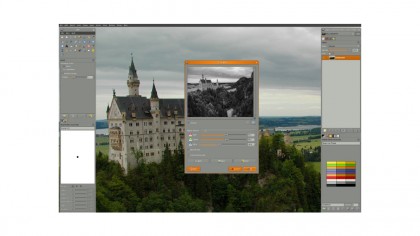
Shelling out hundreds of dollars for Adobe's Photoshop software is not to everyone's taste. Especially when there are programs like GIMP that are free and perform a similar set of functions. Developer releases are split into two different streams. The Stable Series include the very latest bug fixes and, although they aren't as stable as the official releases, they can be used if you have found a bug fix that has yet to be applied to the full version. The Development Series, on the other hand, can be very unstable and only recommended for work that isn't of a serious nature. One last thing – the builds are for Windows 32-bit and 64-bit only.
Another of the free open source vector graphics editors is Inkscape and it offers more to developers than GIMP when it comes to nightly builds. Where GIMP only caters for Windows, Inkscape provides the latest "bleeding edge" features for users of Windows, Mac OS X and Linux plus the latest source code with all that available at this link. The people behind Inkscape do warn that builds won't be available every day and there's a bug reporting page so you can let them know about any problems.